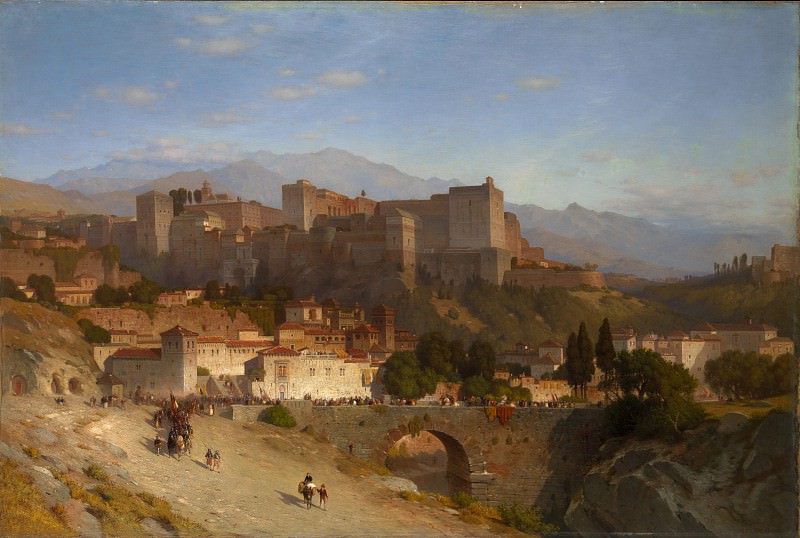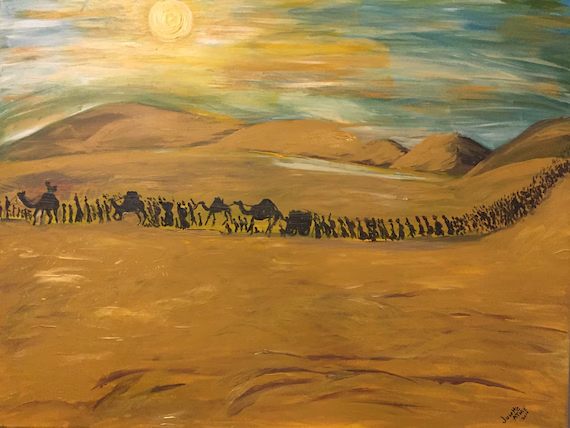Moses & the Laws of God
Moses led the Hebrews away from Egypt, across the desert, as God had told him to do. For months, they trekked across the hot, dry land, but God always sent them food and water.
At last, they stopped and camped at the foot of Mount Sinai. Moses climbed the mountain to pray to God.
God told him that the people must be ready for Him, that in three days He would come down the mountain hidden in a cloud, and would speak to them. The people washed their clothes, and cleaned the camp ready for the meeting with God.
On the third morning, the sky grew dark, thunder rolled and lightning flashed. The mountain was covered with thick clouds. Smoke and fire gushed out of the top, and the ground shook. They heard the sound of a loud trumpet. The people were terrified: they knew that God was near.
Moses and his brother, Aaron, went up the mountain and God spoke to them out of the fire and smoke. He gave them ten laws that His people must always keep.
God said. 'I am your God. You must have no other gods but Me. You must not make idols, nor worship them. When you speak My name, say it with respect. Work for six days and keep the seventh day as a holy day of rest. Always treat your mother and father with respect.
Do not kill any human being. Husbands and wives must be faithful to each other.
Do not steal.
Do not tell lies.
Do not be envious of the things others have.
Moses went down the mountain, and told the people the laws God had given them. They agreed to keep the laws and to be God's special people.
God had told Moses that He would write down the laws on two blocks of stone, and Moses went up the mountain again to receive them:
Moses was away for so long that first the people grew impatient and then angry. They said to Aaron. 'We don't know what has become of Moses, who led us out of Egypt. Let's make a new god to lead us.
Aaron agreed, and collected gold earrings from the people. He melted them down, and made a golden calf, like an Egyptian god. He set it up on an altar, and declared that tomorrow would be a feast day.
The next day, the people feasted, danced and sang around the altar, making a great noise. "This is our god who brought us out of Egypt." they said.
God saw how quickly the people had forgotten His laws, and was angry. When Moses came down the mountain with the two blocks of stone on which the laws were written, and saw the golden calf, He was very angry too.
He threw down the blocks of stone, and broke them. He smashed the golden calf and the altar. 'You have done a terrible thing." he said to the people.
Moses begged God to forgive the people for the wrong they had done. He went up the mountain again, and God gave him two more blocks of stone with the tens laws written on them. Moses carried them down the mountain.












Comments
Post a Comment